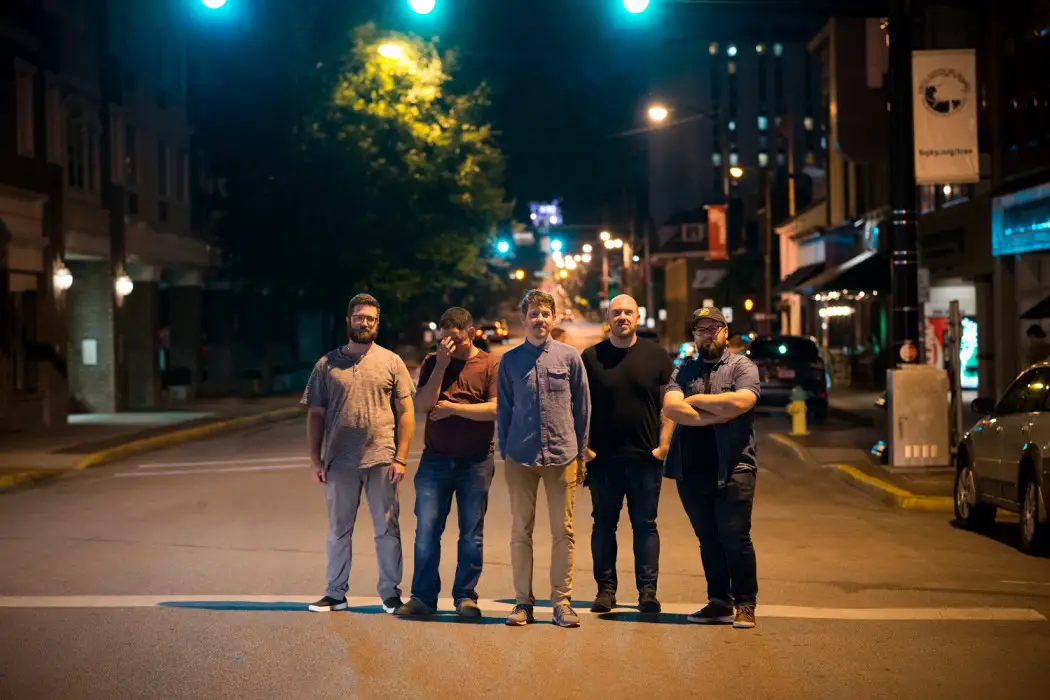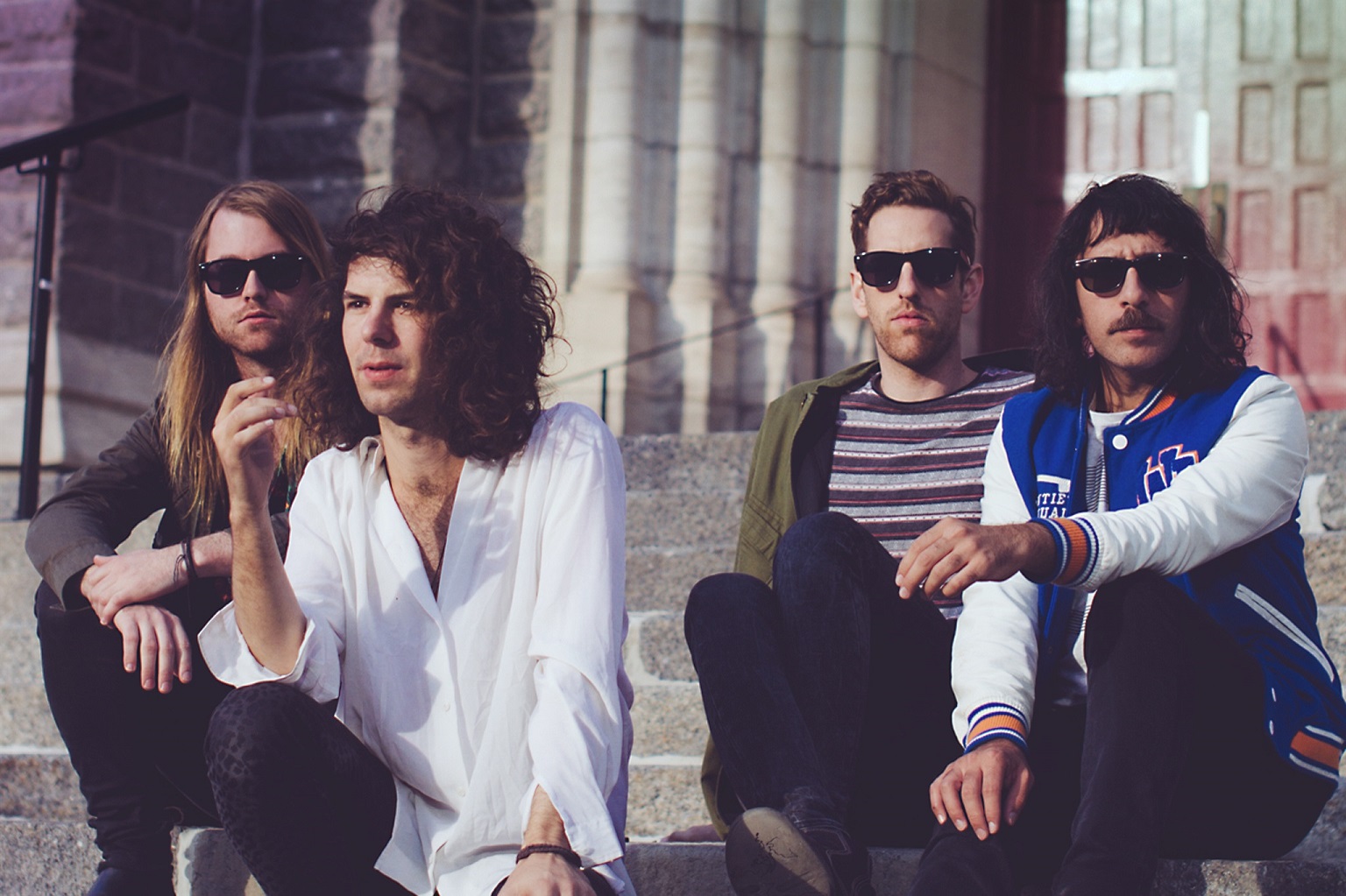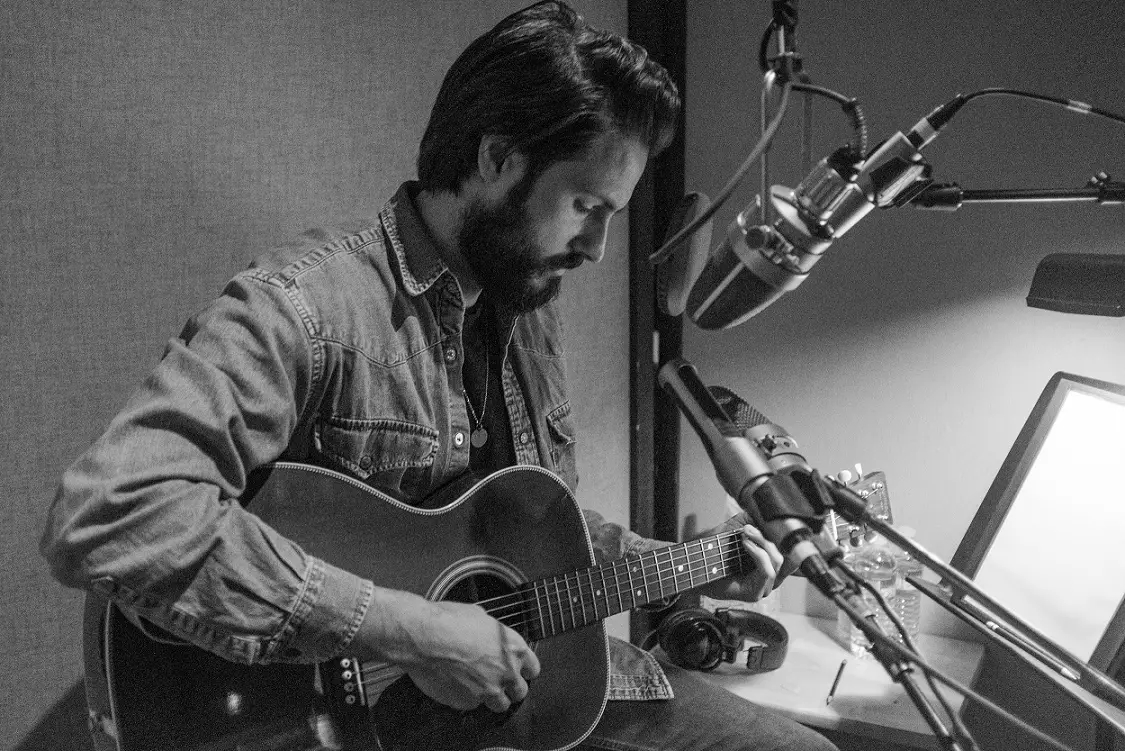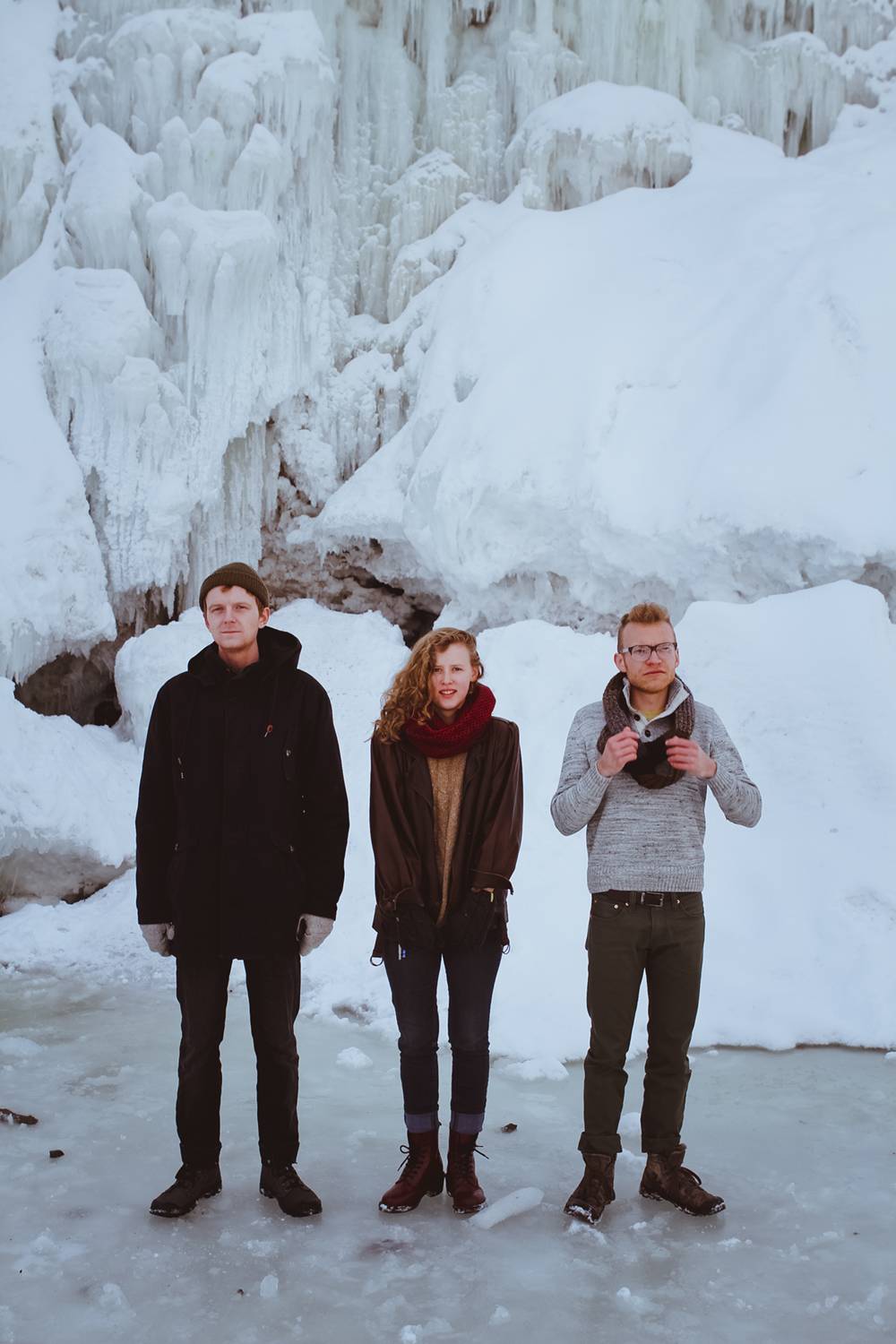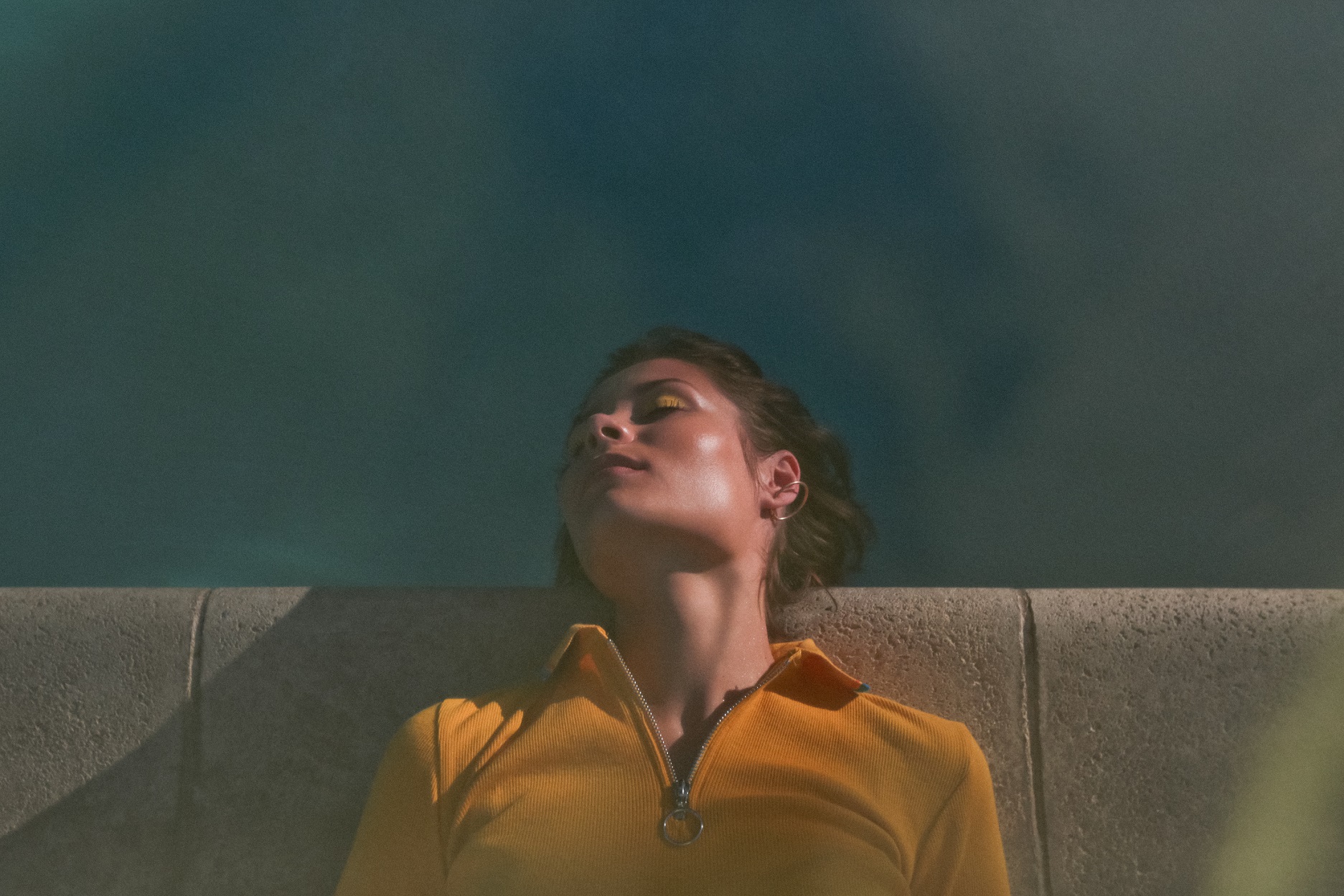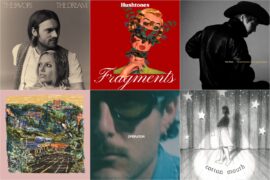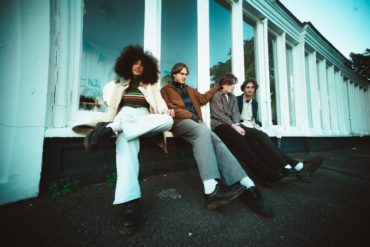Foxhole’s “After The Walk” brings a personal touch to instrumental rock on their first album in 12 years.
— —
Post-rock and instrumental rock are typically impersonal music. No matter how great a band is, it’s hard to form a relationship with a band that doesn’t use words. Still, Foxhole manage to create a warm atmosphere on their new album, Well Kept Thing (out 9/28/2018 via Burnt Toast Vinyl); it’s a very personal and human album in a genre that’s easy to be detached from. Well Kept Thing is the band’s first album in twelve years, and Foxhole conjure a number of emotions while incorporating a few different genres and keeping a truly cinematic feeling on the album’s opener, “After the Walk.”
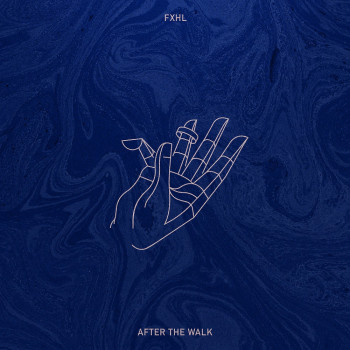
Atwood Magazine is proud to be premiering Foxhole’s “After the Walk” single and music video today! In the years since the band’s last album (2006’s Push/Pull), Foxhole have spread to all different parts of the country, continuing to work on their collective music while exploring their own musical interests, careers, and lives. “After the Walk” and all of Well Kept Thing have the air of old friends coming together. It feels like being the first group of friends to get together at a quiet pub the night before Thanksgiving and catching up on where life has taken you. The band had this to say about the song:
“Written under one of the live oaks that pepper Austin, TX, album opener “After the Walk” is an attempt to bring joy and elation to post-rock, a genre not exactly known for its bright side. A close listen reveals coins dropping to the floor as the song empties out, as well as a misplaced chuckle in a guitar mic at the break. It’s a celebration of friendship — the sort of excitement that comes not from swelling cymbals and cinematic guitars, but from being in the same room as old friends, who remember parts of you that you’d nearly forgotten.”
The music swells with a near operatic quality and the piano hits notes that even give the song some jazzy qualities. Still, there’s a certain homely feeling of the song that makes it almost feel like it’s a folk song. The simple vocals that compromise of “doo’s” are an odd, yet perfect pairing for the driving drums and swelling guitars, but it’s just what makes the song feel like a group of friends getting together to write great songs.
Foxhole’s Well Kept Thing is out September 28th via Burnt Toast Vinyl. Atwood Magazine spoke to Foxhole about the process of making their new album, the possibility of touring, and how to make a post-rock song feel so personal. Stream “After the Walk” exclusively on Atwood Magazine, and dive deeper into Foxhole below!
Stream: “After the Walk” – Foxhole
[soundcloud url=”https://api.soundcloud.com/tracks/474746049?secret_token=s-vp0aq” params=”color=#ff5500&auto_play=true&hide_related=false&show_comments=true&show_user=true&show_reposts=false&show_teaser=true&visual=true” width=”100%” height=”300″ iframe=”true” /]A CONVERSATION WITH FOXHOLE
Atwood Magazine: This is your guys' first album in 12 years. What sparked the comeback now?
Adam Moore (guitar): Who wants to take that, Greg?
Greg Leppert (Trumpet/Keyboard/Electronics): I’ll take that. So, we never really stopped working on the album, there were some lulls in there. But for the most part it was an extended writing process with a few breaks in between. Now because we actually got to a point where we felt the music was mature enough to release, but also it was sparked in part by we had collected all this material, we had gone into the studio previously, into a couple studios and I had time in my schedule to set aside to tie up a lot of loose ends. Much of it was work that I had yet to do. The guitars had mostly been written, the drums had mostly been written, the bass guitar, all of that.
And so, I went back and looked at everything we had recorded and worked to tie that together with the horns and the electronics and the keys. Working with the guys, writing parts remotely up here in Massachusetts and then sending them the files to talk about song structure, melodic changes that I was making. And it was the first time in a few years that I had been actually able to focus on music because previously I had been in New York working on a business. So it just so happened that I had a lull in life and could tackle the last parts of the album.
Justin Shepherd (Guitar): We were doing the band thing for years and it was fine and then we all started growing up and getting married and jumping into careers and stuff and so we had all been centrally located here in Bowling Green, Kentucky and then Greg and Adam moved to Nashville and then Derek [Holt, bassist] moved all sorts of different places and then Greg moved to New York and Adam moved to Texas and it was just … you know, we never really meant to stop doing it. It was just a matter of logistically how do we pull it off? We finally came to a point about two years ago where, life had settled down enough for all of us to carve out a few days for us all to meet up in a central location and really revisit everything that we had done and I think the record’s better for it. I think in an ideal world, we would have gotten it out a long time ago, but we’re happier with the final result now than we probably would have been had we just finished it way back when.
And Greg, you said that you guys hadn't really stopped writing the record. Was it is sort of a continuous writing process with consistency or was it bursts of working on it and then maybe extended breaks in between?
Greg: There were bursts and breaks for sure. Largely dictated by our circumstances in life and our friendships started with music and then developed into something that was much larger than that. But music has always been a great reason to stay in touch and to update each other on our lives, figure out what’s been going on relationships and everything else. So, often times, continuing to write these songs would be the prompt to have these broader conversations about what we were doing and especially as we moved away, that became more and more important. When Adam and I happened to move to Texas within a few months of each other, it gave us a great reason to get together once a week to talk to each other, to be this diaspora of the band out West. And to connect back with everybody who is in the Kentucky, Tennessee area. So, I think that reason will probably, as a band, continue on into the distance simply because for us, it’s a way of prompting a conversation. And eventually, that leads to some sort of output that we would like to share with the rest of the world, but we do just for ourselves.

Awesome. And being that you guys have moved around and have been spread all over, how did you all write your parts and do everything for this album? And did you find that more difficult or easier even though some of you are closer together than others?
Adam: I think maybe 50 percent of the structure of a lot of the songs from the album kind of happened where we were all together. The writing process is completely different when you’re together than when you’re apart because you can get much more done quickly when you’re together, and you can get into the groove or find happy, nice moments and things that you can push farther together in person. But, it just takes a lot longer remotely. And design remotely as well the same sort of thing happens. The consensus mechanism is just harder to come to, when you’re apart. But I think that playing together as a band for so long, and we toured for quite a while that we all knew each other’s sensibilities already and so that definitely made it easier when we start writing mostly remotely because I think we all have in the back of our heads what each other would think, and we’re able to process that out before problems arise. Does that make sense? Anybody else agree with that?
Justin: I would agree that we established a good democracy as a band, I think every band has to decide what their government structure will be. And ours is very much a democracy and a family business, to borrow words from the Bry Webb described the Constantines. And so, we had gotten good at not only anticipating the needs of other people, but also checking out egos at the door. So when we first started, 18 years ago, there was a feeling that if you didn’t play on a song, that you somehow were a lesser member of the band. And at this point, I don’t think a thought like that crosses any of our minds. There’s no ego like that tied up into it and there’s only a willingness to take whatever energy somebody is able to put into the band and use that constructively. Because, as we grow further apart, that energy, that thing that’s most important rather than some sort of vying one idea against the other.
Adam: On any given song on this album, half the songs have all of us, and then probably the other half of the songs are missing at least one person’s direct input. We all obviously got to talk about how the songs are structured and what goes where and how things sound. But there are a couple songs where I’m not playing on them and there’s a song or two where the drummer’s not playing. There’s a song where Greg’s not playing. That to us doesn’t matter anymore. Whereas, like Greg said, in the early years, I think everybody was kind of like, “You gotta be at the party”. And we’ve gotten to a point where we don’t have to be at the party. It’s good enough to hear the story of the party and just sort of enjoy it as an extension.
Absolutely. You've touched on this a little bit, but how do you think that the time passing and the distance has changed your perspective and approach to making music?
Greg:It’s been helpful and it’s been a challenge at the same time. We’ve definitely matured as people, as musicians, we’ve seen a lot more of the world than we had when we first started the album and been exposed to a lot more music and more ideas. And so that’s been great. There’s been a sense that we can dig into new sounds and new instruments, whether that’s because we’re looking for unique ideas or because the constraints of our environment. A lot of what I wrote I actually wrote as electronics because I didn’t have access to the piano at the old church we used to practice in anymore. And playing trumpet when you’re living in New York is a challenge because, as you know, it’s hard to find a practice space: you’re living in an apartment typically in close proximity to other people. So you end up writing a bit differently there. But there’s also this aspect of that distance makes it a bit of a challenge to then look at all of the ideas that may have developed over the course of five or six years within a single song and figure out how they all fit together. So I think that’s where the end of this process became key was that there was this building of a repository of musical phrases and ideas and licks and there needed to be a point where we came together and stitched them into a cohesive whole. And much like a quilt, that’s how we’ve been describing the album, it’s unimportant the age of those various parts, it’s unimportant the fact that some of them are fairly disparate. What is important is that at the end of the day, we decided to put them together to create a broader image where if you look at it closely you can maybe hear something that sounds like it was written by a bunch of guys who were into post rock in their early 20’s. And if you look at something else closely, you can hear us getting into jazz records. But if you pull out what you see as something that is cohesive and somewhat narrative in order to bring that all together. And that’s a necessity at that point because you don’t really need narrative when you have a cohesiveness of a single aesthetic. That narrative is that thing that can sit on top and just pull it all together.
Justin: I would just add to that that the typical operation of probably most bands definitely our band for years was, we’d get together regularly and we’d basically start where we left off. And so, every time you’d got back together, you have this mark. And moving away from one another, and not doing it as often, it led to a lot of weird things. But they were weird in a good way and then six months pass and all of a sudden, Adam has gone down the rabbit hole of Mississippi blues music and I’ve gone down the rabbit hole of free jazz or something. And all of a sudden, everybody comes in with all these ideas that don’t necessarily make sense from the previous benchmark, but it leads to some interesting opportunities. So I think if you listen to the other stuff we put out before this album, I’m still very proud of it and I think it’s dynamic but I think Well Kept Thing in particular, is just a lot more dynamic than the other stuff. There’s a lot more range there and I think that’s because we weren’t always starting right back where we left off. Sometimes it was like, we had all taken these various journeys and we come back and we’re all trying to tell each other the story of where we’ve been and they just make an interesting juxtaposition with one another.
You described “After the Walk” as “an attempt to bring joy and elation to post rock,” and you also described it as, “a celebration of friendship.” In a song that's mainly instrumental, although I did hear a couple vocals in there, how do you create something warm and welcoming in a traditionally sort of cold genre without the help of lyrics?
Adam: Sure, yeah, that’s interesting. Cause to me, it’s hard to not think of that genre-but I don’t know if I’ve ever really thought about us as a post rock band, but I think we fit neatly into that category, I don’t think it’s bad, really. But, a lot of post rock does not have a lot of dynamic melodies, a lot of repeating melodies, and that song in particular is sort of jangly, it’s happy, it’s got a melody that just sort of drives everything. I feel like that’s what stands out about it and there’s a lot of other little personal moments like people talking in the background, things that got left in that I think that song felt kind of personal to us for some reason. That song is maybe one of the songs that was written completely in insolation from each other, like I think we’d just started on that, me and Greg when we were living in Texas. But I think it was mostly done completely remotely. And so I think that song has the freshest sound on the album, that has fewer links to where we started.
Justin: I would second Adam’s pointing out that the presence of people. One of the things that you can kind of miss in post rock is that it’s so removed. You don’t hear someone breathing into a microphone, you don’t hear chairs squeak all that much. You don’t hear the presence of people in that. So, that was a deliberate choice to not only put people into the song, but put ourselves into the song so that we would have a memory of being in the studio and being in a specific state with each other. And on top of that, I do think that melodically, as Adam pointed out, it’s a fairly uplifting lick. And it drives to somewhat of a climax but I think it has more in common with a dance party than it does with the end of some sort of cinematic film. Which I think is a place that post rock has often found a home, and rightfully so. It can be very good at those things. There’s so many other genres out there where a band like the Moldy Peaches is just fit in as the trope and I don’t see why the Moldy Peaches can’t take the spot of a post-rock band and a post-rock band can’t try and fit into that Moldy Peaches trailer.
Greg: I can’t imagine what a Moldy Peaches post rock song would sound like.
Justin: Well, we should write them a letter, see what comes back.
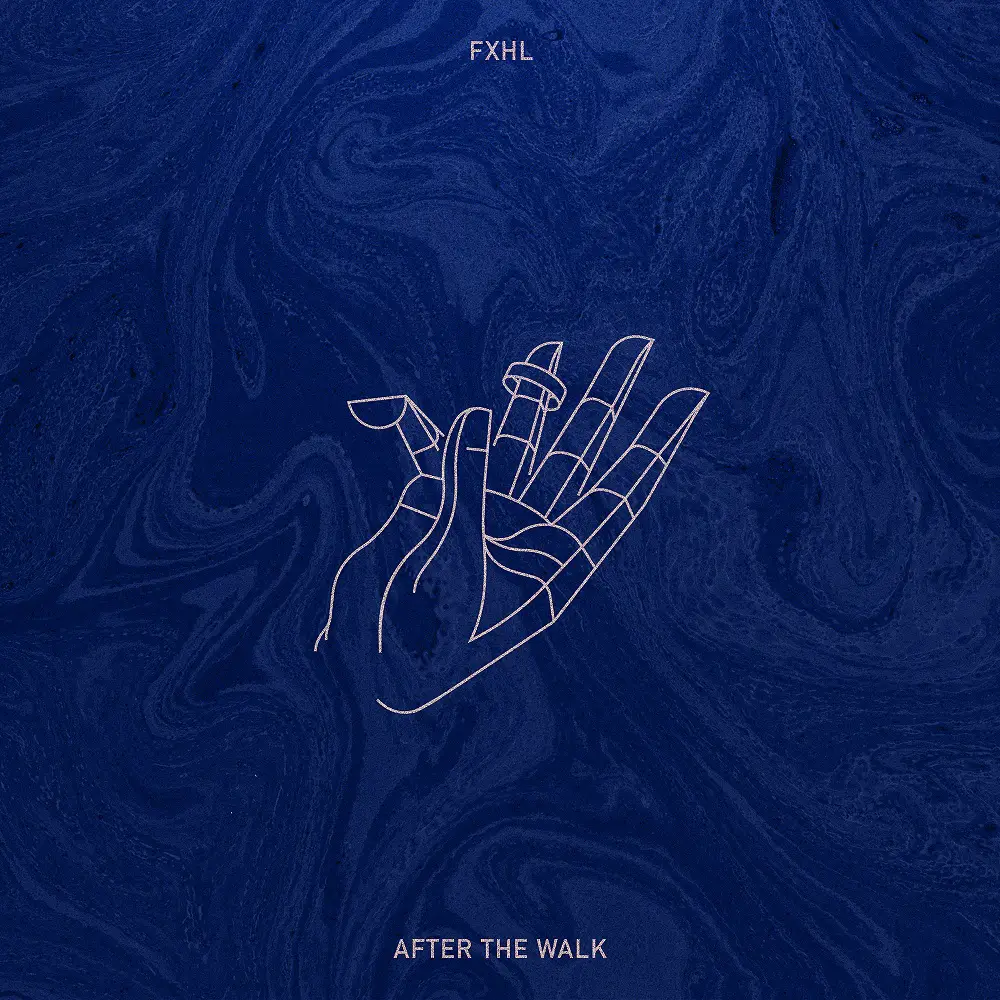
Do you guys have any plans to tour behind this album?
Justin: The short answer would be, we don’t have plans, but I think we have optimistic aspirations we will perform together at some point again. I can’t speak for everybody else, but for me, one of the things that I’ve appreciated about Foxhole over the years and I think that has sustained us, is that we’ve never put a huge emphasis on performing. We’ve played a couple hundred shows over a decade and half but it very quickly became about our relationships with one another and just the creative actions of writing and recording music. And the performing of it is really, I mean, I’m gonna be honest, it’s not our strong suit. We enjoy it, but we’re busy guys and we’re all married with children at this point and performing is a challenge just to get practiced up for it much less logistically figure out how we’re gonna get away from our day jobs for any significant chunk of time. It’s challenging, but we’ve talked about it and I think that it’s definitely a hope that we would figure out some way to get together and play a few shows. And then maybe we do that and then five years down the road we do it again. We’re not gonna go on some sort of extended tour but we would love to meet up and perform again for sure. The secondary goal, maybe the primary goal is to teach our kids to play the songs, and then like NOFX send the shadow version of our band on tour. In the tradition of Gallagher and NOFX we’ll find a way to live on.
Awesome. Alright do you guys have anything else you want to add for your fans and our readers?
Greg: The one thought I couldn’t pull out as far as stitching it all together, I would say, I don’t know if the other guys will roll their eyes, but there are parts of the album that to me, have more in common with Girl Talk than almost anything. And that’s the stitching together of finding pockets and finding themes that we ended up doing, but we ended up doing with our own music instead of a collection of other people’s music… We really appreciate the fact that there’s still an audience out there, and that we’ve been able to reconnect with people as though there was no interregnum between our albums. And it makes us feel like whenever we’re ready to have that conversation in the future, whether it’s a year or two from now when we have new music, or ten years after that, that we’ll have a chance to commune with people beyond ourselves with the music that we make. And so, we’re looking forward to that.
— —
:: stream/purchase Well Kept Thing here ::
— — — —
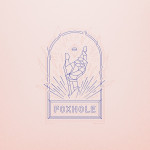
Connect to Foxhole on
Facebook, Twitter, Bandcamp
Discover new music on Atwood Magazine
? © Loren Gifford

